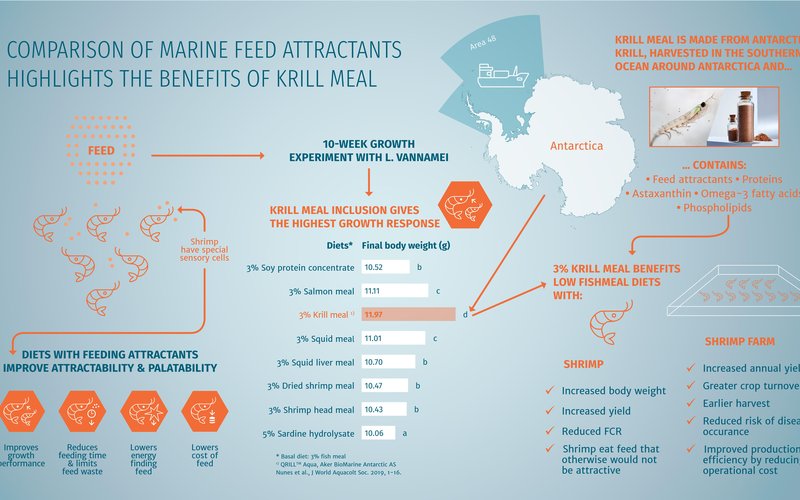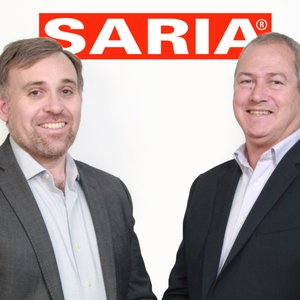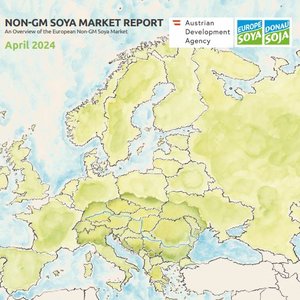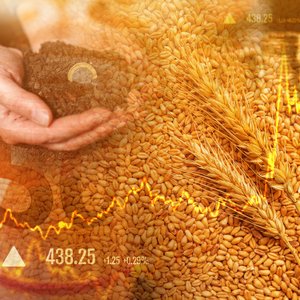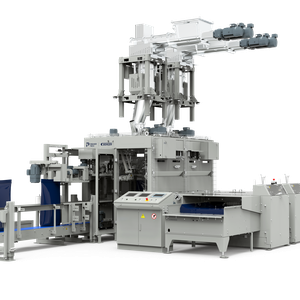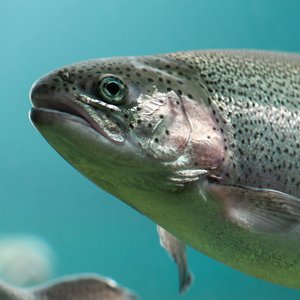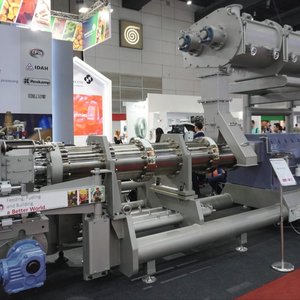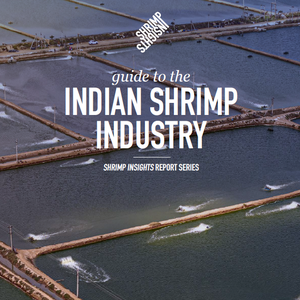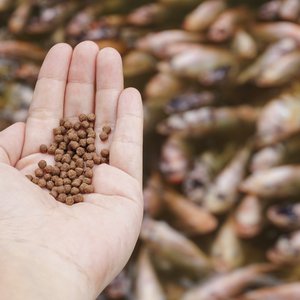With the shrimp farming industry moving increasingly towards low fishmeal content feeds, practical feed formulations depend on meals, solubles and hydrolysates made from fish, squid, shrimp, krill and molluscs to act as chemoattractants and feeding stimulants. But with such a wide array of options, identifying the optimal marine chemoattractant for a species like whiteleg shrimp has proven incredibly difficult.
A new study conducted by a team from the Instituto de Ciências do Mar, Brazil (Labomar) in conjunction with Aker BioMarine, examined the feed preference and growth response of juvenile whiteleg shrimp (Litopenaeus vannamei) to various marine chemoattractants. A diet with 3% fishmeal was supplemented with either 3% krill meal, squid meal, shrimp head meal, shrimp meal, squid liver meal, salmon meal, soy protein concentrate or 5% liquid sardine hydrolysate.
With under 100 animals/m2 in 56 1-m3 tanks, shrimp were fed ten times daily for 74 days. At harvest, the shrimp were counted, weighed, and their growth performance and feed efficiency were determined. In order to evaluate feed preference, two-by-two comparisons were carried out, with different chemoattractants diets delivered simultaneously in two separate feeding trays that were allocated to each tank.
The results showed that krill meal is the most effective growth enhancer in fishmeal-challenged diets for whiteleg shrimp. The final body weight was the highest for shrimp fed with a krill-meal supplemented diet (11.97 ± 0.93 g), followed by salmon meal (11.11 ± 0.77 g), and squid meal (11.01 ± 1.17 g).
The study author, Dr. Alberto J.P. Nunes from Instituto de Ciências do Mar, Brazil (Labomar) said that “the research clearly illustrates that a dietary supplementation with 3% krill meal is more effective than the same dose of squid meal, salmon meal, squid liver meal, shrimp head meal, and sun-dried shrimp meal or 5% liquid sardine hydrolysate”.
Researchers found that other chemoattractants also had the ability to promote a stimulatory effect on shrimp feed intake and feed preference but didn’t result in enhanced shrimp growth performance. Indeed, the positive growth effects observed in the shrimp fed with krill meal reflects the balance of higher feed attractiveness and stimulation, along with the steady supply of key dietary nutrients, delivered by krill, and krill alone.
Read the study here.


